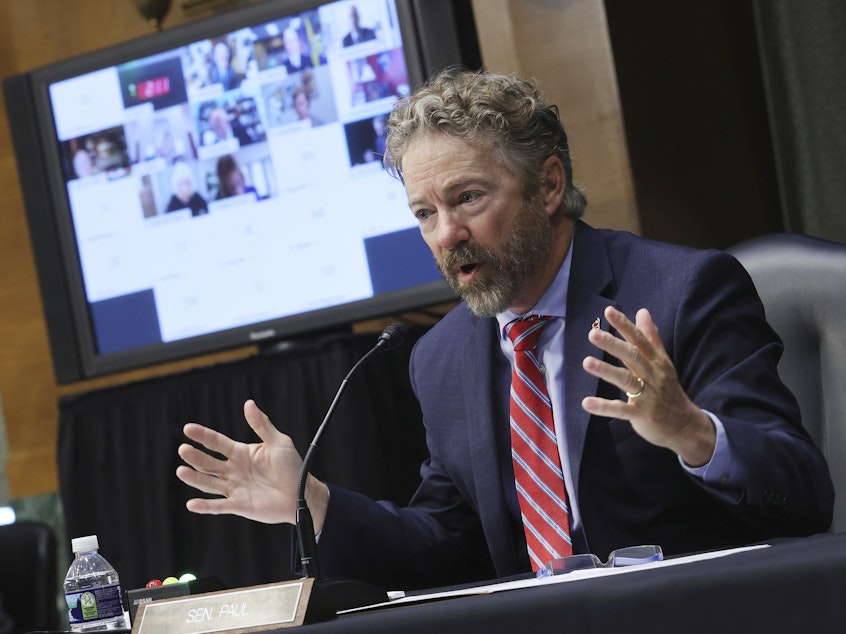Sen. Rand Paul To Dr. Fauci: 'I Don't Think You're The End-All'

Sen. Rand Paul, R-Ky., had sharp words for Dr. Anthony Fauci, the nation's top infectious disease expert, during Tuesday's Senate committee hearing on the coronavirus.
In arguing for reopening the economy and schools, Paul said, "As much as I respect you, Dr. Fauci, I don't think you're the end-all. I don't think you're the one person who gets to make a decision."
Paul pointed to the mortality rate in New York City of young people up to age 18, which he said was near zero — much lower than for older people.
"If we keep kids out of school for another year, what's going to happen is that the poor and underprivileged kids who don't have a parent that is able to teach them at home are not going to learn for a full year," said Paul, who himself tested positive for COVID-19 in March.
Earlier in the hearing, Fauci responded to a question about whether schools should reopen in the fall by saying it was unlikely there would be a vaccine or a treatment for COVID-19 available that soon. At the end of the hearing, he clarified that reopening should be based on testing capacity and the severity of the local outbreak, not on whether a vaccine is available.
On getting people back to work, Paul said there was evidence those who do contract the disease develop an immunity to it, at least in the short-term.
Paul went as far as to say that "the silver lining to so many infections in the meat processing industry is that a large portion of these workers now have immunity. Those workers should be reassured that they likely won't get it again instead of being alarmed by media reports that there is no evidence of immunity."
Researchers think recovering from a COVID-19 infection may in fact lend some protection against future infections. However, it's not yet clear how strong that protection is, how long it lasts, and how the level of antibodies someone has in their blood correlates with that protection.
Fauci said it was a "reasonable assumption" that recovering would be protective, but that it would take longer-term studies to say that definitively.
As for his own humility, Fauci responded that he has "never made myself out to be the 'end-all' and only voice in this. I'm a scientist, a physician and a public health official. I give advice according to the best scientific evidence," adding that it is others' jobs to give economic advice.
Fauci said Paul was "right in the numbers that children in general do much, much better than adults and the elderly and particularly those with underlying conditions. But I am very careful and hopefully humble in knowing that I don't know everything about this disease."
He noted some children were suffering from "a very strange inflammatory syndrome" that is believed to be related to COVID-19.
"I think we've got to be careful we are not cavalier in thinking that children are completely immune to the deleterious effects" of the coronavirus, Fauci said.
NPR Science Desk reporter Pien Huang contributed to this report. [Copyright 2020 NPR]



